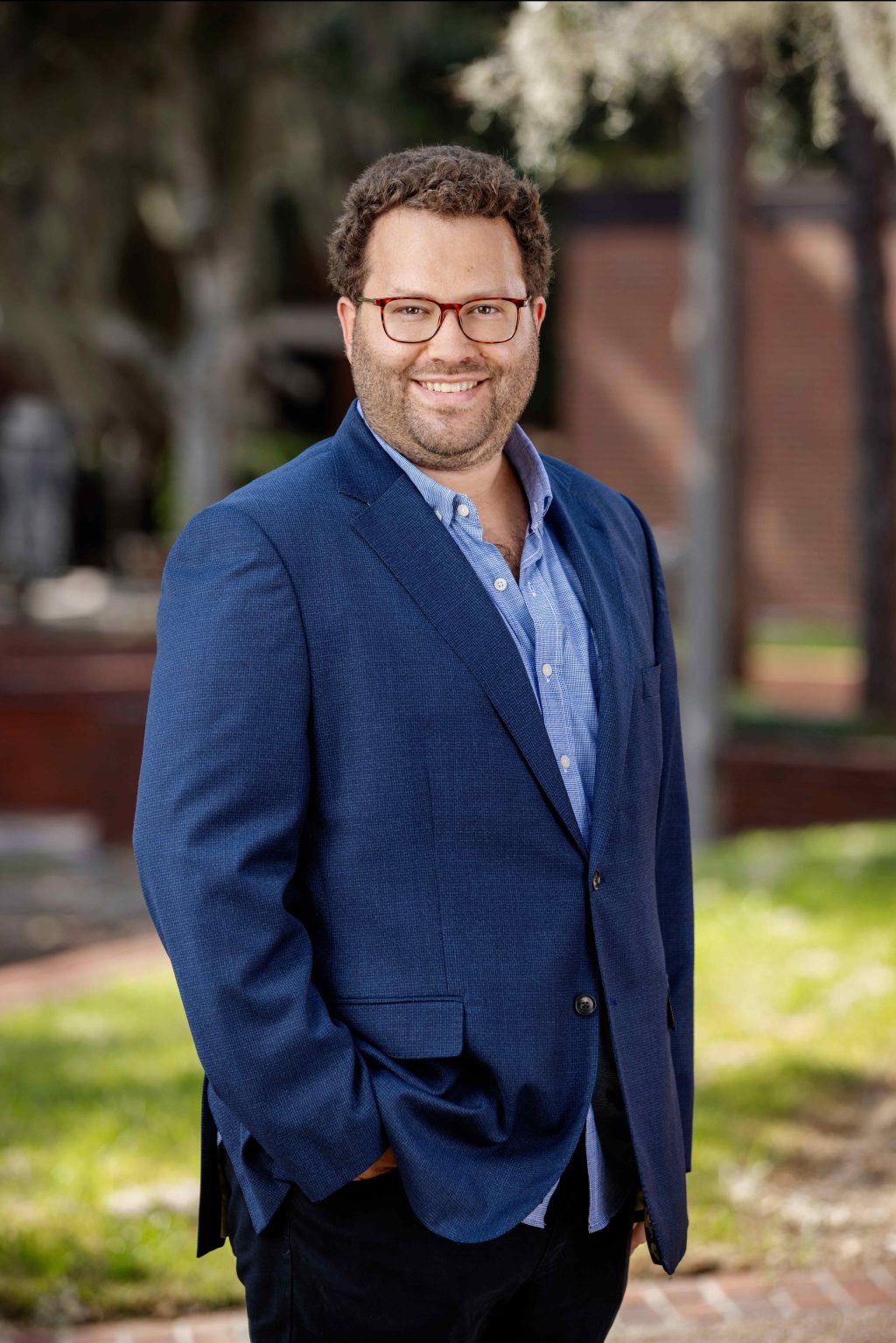
Thomas Vozar is Assistant Professor of Humanities in the Hamilton School for Classical and Civic Education. He previously was a postdoctoral fellow at the University of Hamburg. His research concerns early modern literary, cultural and intellectual history, with interests in Milton, Shakespeare, classical reception, Neo-Latin studies, the transnational republic of letters, the history of scholarship and education, orientalism, European-Islamic encounters, colonial America and book history. His has published over thirty articles on subjects ranging from the influence of academic drama on Shakespeare’s Julius Caesar to the circulation of a Latin treatise on Islam by the Polis-born Ottoman dragoman Ali Ufki. His first book is Milton, Longinus, and the Sublime in the Seventeenth Century (Oxford University Press, 2024).
Vozar’s current book project is Polemical Erudition: Scholarship and Politics in the English Revolution, a study that offers a novel perspective on the English Revolution by investigating the intersections of British politics with European learned culture in the 1640s and 1650s. Polemical Erudition will demonstrate that the English Revolution was not only waged on the battlefields of Naseby and Worcester but was also fought across Europe, often in Latin, in erudite polemics, treatises, disputations, lectures, commentaries, epigrams, and letters. In addition, Vozar is translating Isaac Barrow’s De Religione Turcica, a book-length Latin poem on Islam composed during a visit to Istanbul in 1658, and developing a new book project provisionally entitled Liberty to Know: Milton on the Freedom to Philosophize.
“Academic Freedom in the English Revolution: Libertas Scholastica, Libertas Philosophandi, and the Reformation of the Universities,” Journal of the History of Ideas (forthcoming).
“‘In the search of the Eastern tongues’: John Donne’s Arabic Learning,” Notes & Queries (forthcoming).
“The Sidney Brothers, Elizabethan Travelers, and Hugo Blotius, Prefect of the Imperial Library in Vienna,” Sidney Journal(forthcoming).
“The English Renaissance Playwright’s Classical Encyclopedia: The Antiquae Lectiones of Caelius Rhodiginus as a Resource for Jonson and Chapman,” Ben Jonson Journal (forthcoming).
“On the Indexes in Some Continental Editions of Milton’s Pro Populo Anglicano Defensio and Salmasius’s Defensio Regia, with an Addendum on the Publisher Adrienne Brillet,” The Library (forthcoming).
“How to Be a Tourist in the Renaissance: A Qualitative Analysis of Apodemic Themes in English Travel Advice Books, 1580–1650” (co-authored with Elif Vozar), in Print and Tourism, eds. John Hinks and Catherine Armstrong (Bern: Peter Lang, forthcoming).
“Ps.-Longinus, Dionysius Cassius. Addenda et Corrigenda,” in Catalogus Translationum et Commentariorum: Mediaeval and Renaissance Latin Translations and Commentaries, eds. Greti Dinkova-Bruun, Julia Haig Gaisser, and James Hankins (Toronto: Pontifical Institute of Mediaeval Studies, forthcoming).
“Ciceroniana of the Froben Press,” in Cicero in Basel: Locating Classical Reception in a Humanist City, ed. Cédric Scheidegger Laemmle (Berlin: De Gruyter). “Spare Muses: Epigrams by the Cambridge Don James Duport (1606– 1679),” in An Anthology of Neo-Latin Poetry by Classical Scholars, eds. William M. Barton, Stephen Harrison, Gesine Manuwald, and Bobby Xinyue (London: Bloomsbury, 2024).
Pudica Siren: Multilingual Poetic Tributes to the Italian Singer Leonora Baroni in the Applausi poetici (1639),” in The Routledge Companion to Early Modern Music and Literature, eds. Rachael Durkin and Katharina Clausius (London: Routledge, 2024).
“London’s First Public Library: Books and Readers at Sion College, c. 1630–1660,” Milton Studies, 66.1 (2024): 77–97.
“Robert Hooke, Isaac Newton, and the Royal Society: Three Unnoticed Letters at the Staatsbibliothek zu Berlin,” Notes and Records: The Royal Society Journal of the History of Science, 78.1 (2024).
“An Unpublished Autograph Letter from Sir Philip Sidney to Carolus Clusius, 21 April 1576,” Renaissance Studies, 37.4 (2023): 477–546.
“2 Henry VI and the Tomb of Duke Humphrey,” Shakespeare, 19.4 (2023): 586–591.
“Julius Caesar and the Revenge Plot from Oxford to Shakespeare’s Globe,” Review of English Studies 74.315 (2023): 456–469.
“A Cambridge University Greek Textbook at Harvard College in 1642,” New England Quarterly 96.1 (2023): 64–73.
“The New Science and the Virtuoso Reader in Thomas Creech’s Lucretius,” Modern Philology 120.3 (2023): 356–377.
“Isaac Barrow, Ali Ufki, and the Epitome Fidei et Religionis Turcicae: A Seventeenth-Century Summary of Islam in the European Republic of Letters,” Journal of the Warburg and Courtauld Institutes 85 (2022): 145–163.
“Mallecho or Malligo? A Crux in Hamlet Revisited,” Notes & Queries 69.4 (2022): 291–293.
“Alcaics on Restoration Actresses by the Cambridge Classical Scholar James Duport,” Early Theatre 25.2 (2022): 83–88.
“Neo-Latin Epigrams on John Milton by Peder Winstrup, Bishop of Lund, and the Rothenburg Jurist Georg Christoph Walther,”Humanistica Lovaniensia 71.1 (2022): 115–124.
“Selden’s Reply to Salmasius, an Alternative Title for the Pro Populo Anglicano Defensio, and Why Milton Deserves to Be Strangled: Rumour and Opinion in the Correspondence of Guy Patin,” The Seventeenth Century 37.6 (2022): 937– 947.
“Supernaculum: Nashe’s Dog Latin for a Germanic Drinking Custom,” Notes & Queries 69.1 (2022): 17–19.
“Henry Oldenburg and a Brief Notice of Milton’s Of Education in the Philosophical Transactions,” Milton Quarterly 55.1 (2021): 63–66.
“Timor Dei and Timor Idololatricus from Reformed Theology to Milton,” Reformation 26.1 (2021): 62–72.
“An English Translation of Longinus in the Lansdowne Collection at the British Library,” The Seventeenth Century 35.5 (2020): 625–650.
“Sir Henry Wotton’s Copy of Portus’ Aphthonius, Hermogenes, & Dionysius Longinus,” Notes & Queries 66.3 (2019): 473–474.
“On the Fifth Stanza of the Carmen Saeculare,” Latomus: Revue d’études latines 78.1 (2019): 186–191.
“Schneider’s Conjecture on Bellum Alexandrinum 13.5,” Rheinisches Museum für Philologie 161.2 (2018): 238–239.
“Body-Mind Aporia in the Seizure of Othello,” Philosophy and Literature 36.1 (2018): 183–186.
University of Florida
Gainesville, FL 32611
UF Operator: (352) 392-3261